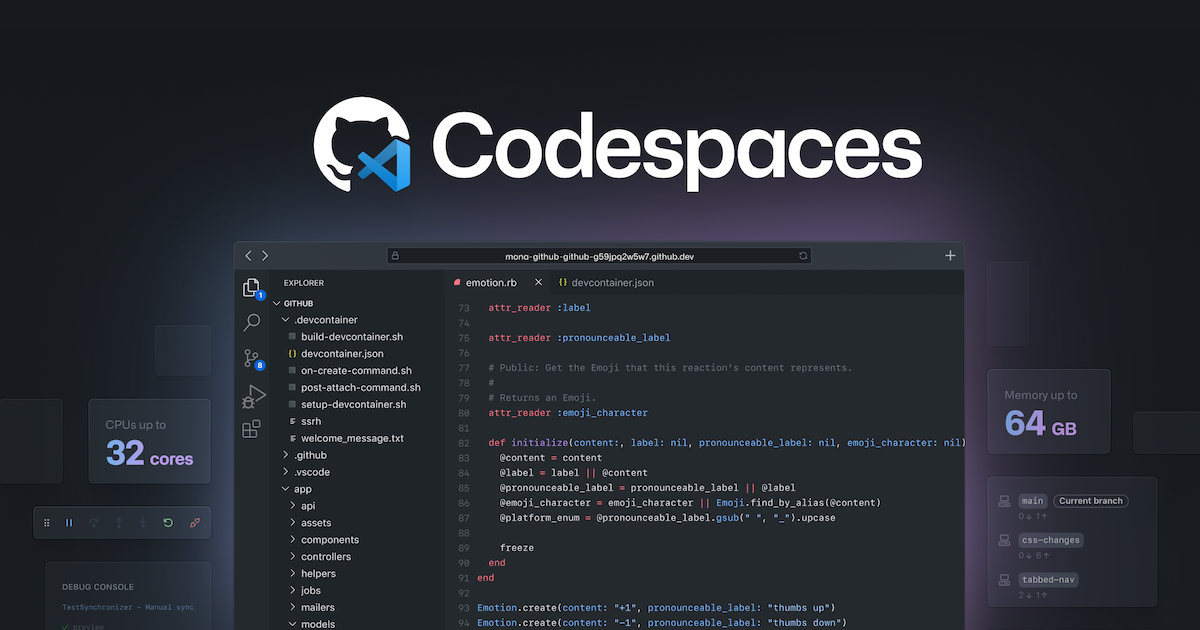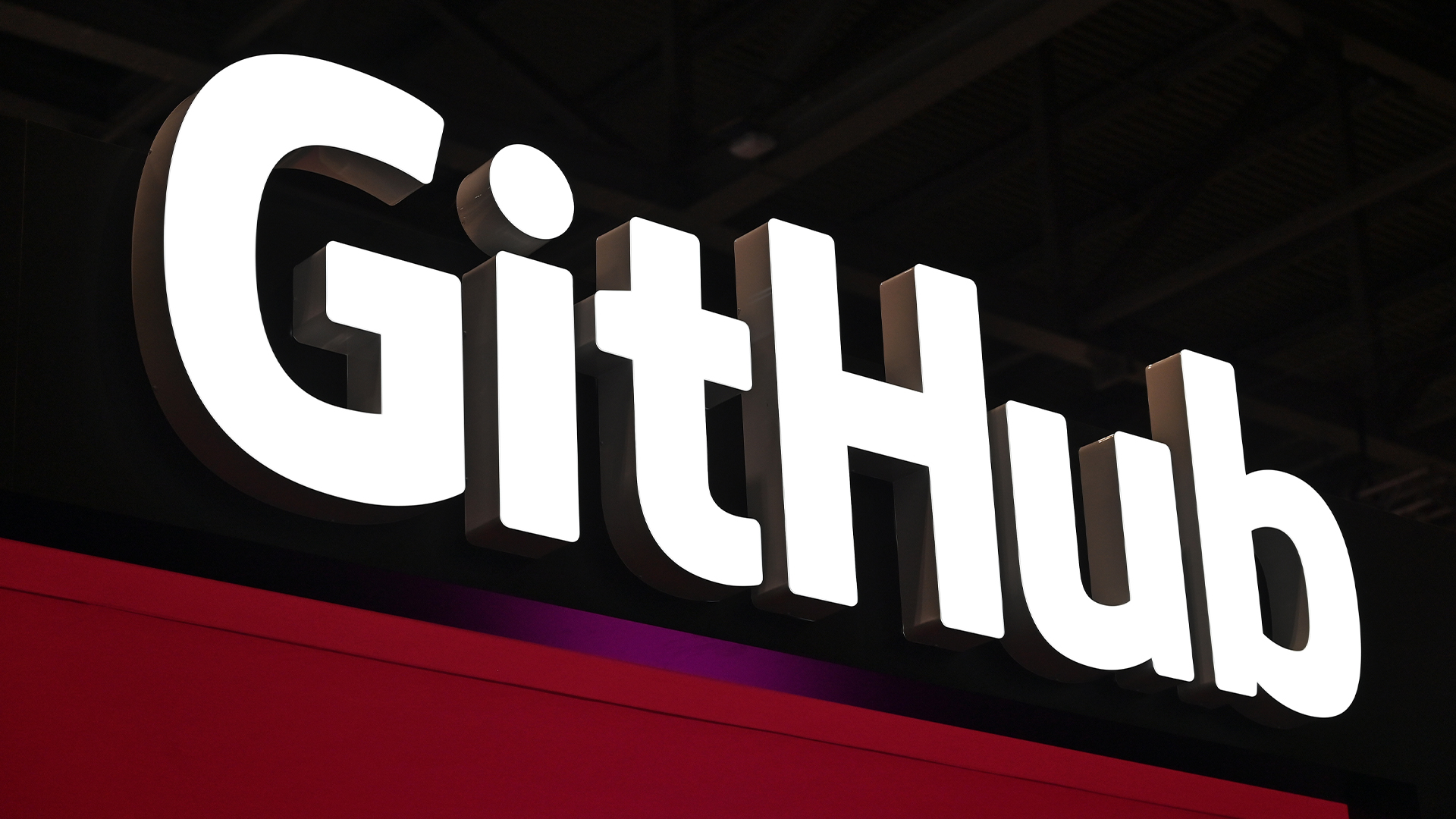GitHub's ultra-fast onboarding tool Codespaces makes its way to public beta
The new feature has been tried and tested in-house and will now be made available to enterprise customers


GitHub has announced it will be bringing its Codespaces feature, used by its in-house developers and enterprise teams, to the wider user base through a public beta.
Codespaces allow developer teams to quickly onboard new members by creating pre-built developer environments that significantly reduce first-time loading times, removing a key element of engineering friction.
These pre-built environments act as ready-made templates that can be issued to all new starters or freelancers and include all project dependencies, editor extensions, commands, and configurations a developer needs to get started quickly.
“Prebuilds were a huge part of how we meaningfully reduced the time-to-bootstrap in Codespaces for our core GitHub.com codebase,” said Tanmayee Kamath, product manager at Codespaces. “With that, our next mission was to replicate this success and enable the experience for our customers.”
Before Codespaces, it wasn’t out of the ordinary for GitHub developers to experience wait times of up to 45 minutes, which included cloning the 13GB repository and getting other dependencies. Organisations involved in pre-beta testing also reported long wait times.
GitHub has said onboarding times for in-house projects have drastically reduced since switching to Codespaces. Through a series of optimisations, GitHub was able to reduce bootstrapping time to 5 minutes, and then later to 10 seconds. The change sped up developer workflows and was especially useful since the company’s developers were pushing hundreds of updates a day.
Pre-built configurations are available as a public beta now for GitHub Enterprise Cloud and Team plans. They’re built on GitHub Actions virtual machines, which facilitate the fast creation time, provide rich logs for effective debugging, and come with a dedicated support service for repository admins.
Sign up today and you will receive a free copy of our Future Focus 2025 report - the leading guidance on AI, cybersecurity and other IT challenges as per 700+ senior executives
Admins can create pre-builds for specific branches and regions in their repository and these will automatically trigger an associated Actions workflow that will manage the pre-building of the devcontainer configuration and any subsequent commits for that branch.
GitHub has started 2022 by announcing a flurry of new features, including an opened-up Advisory Database to allow more security experts to contribute tot he wider understanding of known vulnerabilities affecting GitHub projects.
Last week it also announced an AI-driven code-scanning tool for projects written in JavaScript and TypeScript so developers can check their codebases for exposure to common security vulnerabilities affecting projects written in those languages.

Connor Jones has been at the forefront of global cyber security news coverage for the past few years, breaking developments on major stories such as LockBit’s ransomware attack on Royal Mail International, and many others. He has also made sporadic appearances on the ITPro Podcast discussing topics from home desk setups all the way to hacking systems using prosthetic limbs. He has a master’s degree in Magazine Journalism from the University of Sheffield, and has previously written for the likes of Red Bull Esports and UNILAD tech during his career that started in 2015.
-
 GitHub is scrapping some Claude, OpenAI, and Gemini models in Copilot – here's what you need to know and what alternatives are available
GitHub is scrapping some Claude, OpenAI, and Gemini models in Copilot – here's what you need to know and what alternatives are availableNews GitHub Copilot users are urged to switch to the newer models following the retirement cut-off
-
 UK government programmers trialed AI coding assistants from Microsoft, GitHub, and Google – here's what they found
UK government programmers trialed AI coding assistants from Microsoft, GitHub, and Google – here's what they foundNews Developers participating in a trial of AI coding tools from Google, Microsoft, and GitHub reported big time savings, with 58% saying they now couldn't work without them.
-
 GitHub just launched a new 'mission control center' for developers to delegate tasks to AI coding agents
GitHub just launched a new 'mission control center' for developers to delegate tasks to AI coding agentsNews The new pop-up tool from GitHub means developers need not "break their flow" to hand tasks to AI agents
-
 What Thomas Dohmke’s departure means for GitHub
What Thomas Dohmke’s departure means for GitHubNews Thomas Dohmke won't be replaced as CEO at GitHub, with remaining company execs reporting directly to Microsoft's CoreAI division.
-
 GitHub CEO Thomas Dohmke thinks there’s still a place for junior developers in the age of AI
GitHub CEO Thomas Dohmke thinks there’s still a place for junior developers in the age of AINews GitHub CEO Thomas Dohmke believes junior developers still play a crucial role in the hierarchy of software development teams, and AI won't change that any time soon.
-
 ‘Made the Pro plan worse’: GitHub just announced new pricing changes for its Copilot service – and developers aren’t happy
‘Made the Pro plan worse’: GitHub just announced new pricing changes for its Copilot service – and developers aren’t happyNews GitHub has announced new pricing changes for its AI Copilot service in a move that's sparked backlash among developers.
-
 GitHub just unveiled a new AI coding agent for Copilot – and it’s available now
GitHub just unveiled a new AI coding agent for Copilot – and it’s available nowNews GitHub has unveiled the launch of a new AI coding agent for its Copilot service.
-
 ‘Developers will need to adapt’: Microsoft CEO Satya Nadella joins Google’s Sundar Pichai in revealing the scale of AI-generated code at the tech giants – and it’s a stark warning for software developers
‘Developers will need to adapt’: Microsoft CEO Satya Nadella joins Google’s Sundar Pichai in revealing the scale of AI-generated code at the tech giants – and it’s a stark warning for software developersNews Microsoft CEO Satya Nadella is the latest big tech figure to reveal the scale of AI-generated code at the tech giant, prompting more questions about the future of software development.

